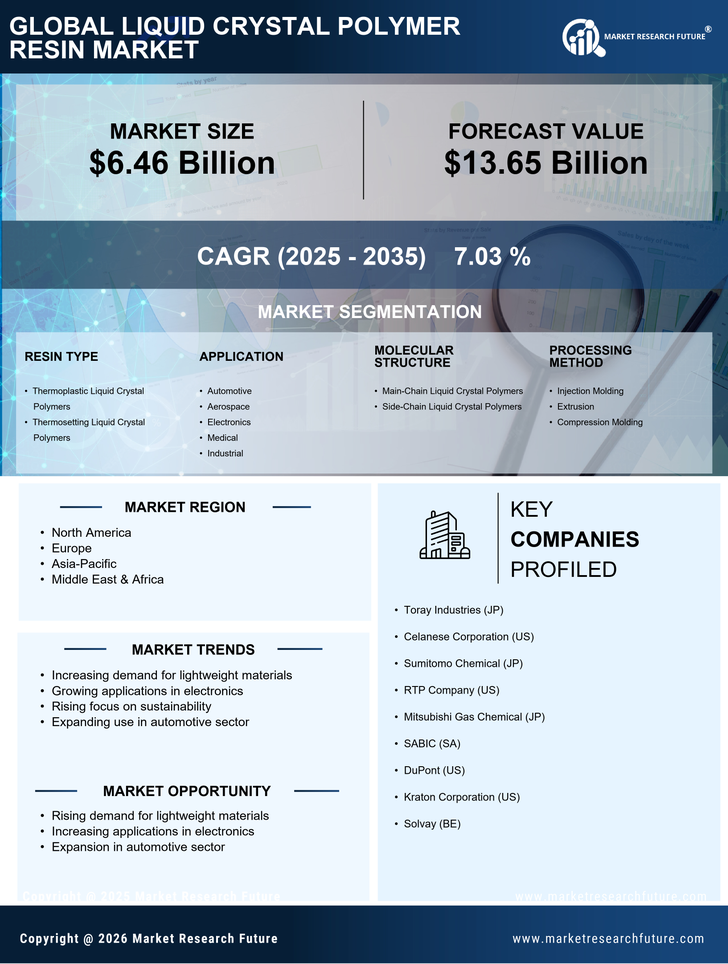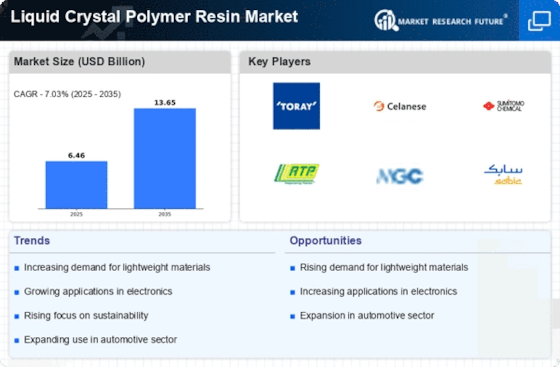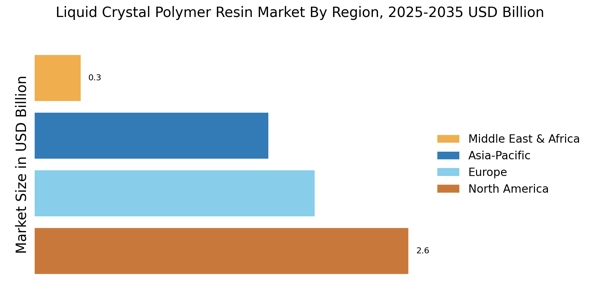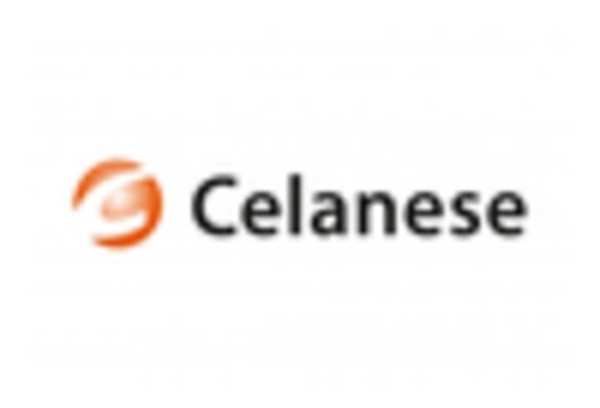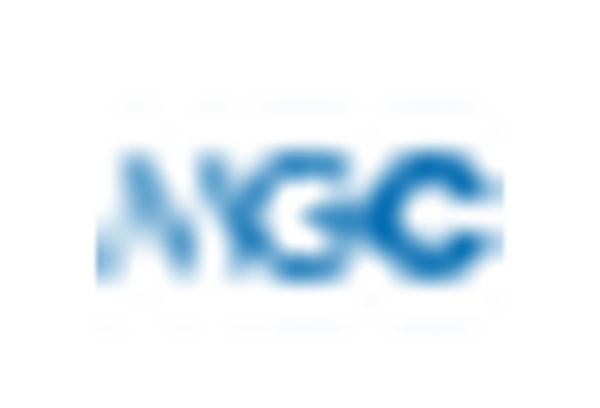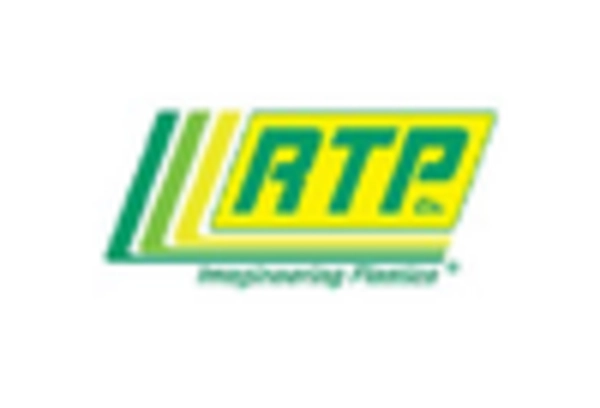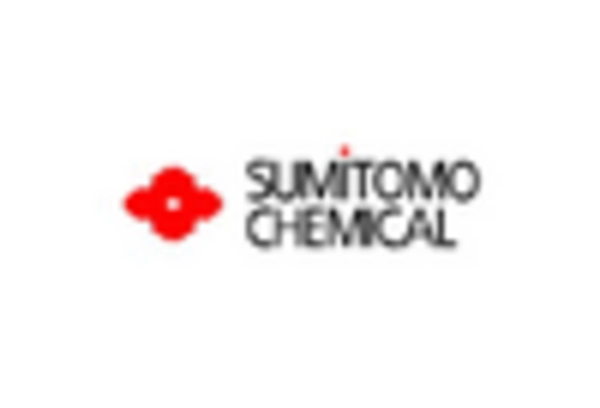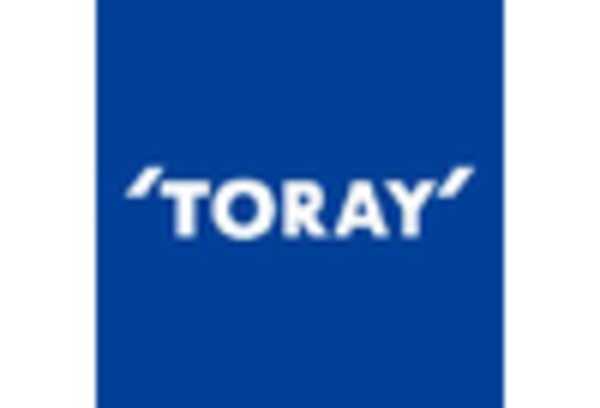Rising Demand in Electronics
The Liquid Crystal Polymer Resin Market is experiencing a surge in demand driven by the electronics sector. As electronic devices become increasingly compact and sophisticated, the need for materials that can withstand high temperatures and provide excellent electrical insulation is paramount. Liquid crystal polymers are particularly suited for applications in smartphones, tablets, and wearables, where performance and reliability are critical. According to recent data, the electronics segment is projected to account for a substantial share of the market, potentially exceeding 30% by 2026. This trend indicates a robust growth trajectory for the Liquid Crystal Polymer Resin Market, as manufacturers seek materials that enhance device performance while meeting stringent regulatory standards.
Advancements in Medical Devices
The Liquid Crystal Polymer Resin Market is also benefiting from advancements in the medical device sector. As healthcare technology evolves, there is a growing need for materials that can meet stringent regulatory requirements while providing high performance. Liquid crystal polymers are increasingly utilized in applications such as surgical instruments, diagnostic equipment, and drug delivery systems due to their biocompatibility and resistance to sterilization processes. The medical device market is projected to grow significantly, with estimates suggesting it could reach USD 500 billion by 2026. This growth presents a substantial opportunity for the Liquid Crystal Polymer Resin Market, as manufacturers seek innovative materials that enhance the functionality and safety of medical devices.
Growth in Automotive Applications
The automotive sector is a significant driver for the Liquid Crystal Polymer Resin Market, as manufacturers increasingly adopt advanced materials to improve vehicle performance and efficiency. Liquid crystal polymers offer lightweight and durable solutions for components such as connectors, sensors, and housings, which are essential for modern vehicles. The shift towards electric and hybrid vehicles further amplifies this demand, as these vehicles require materials that can withstand higher temperatures and provide superior insulation. Market analysis suggests that the automotive segment could represent over 25% of the overall market by 2026, highlighting the potential for growth within the Liquid Crystal Polymer Resin Market as automotive technology continues to evolve.
Emerging Applications in 3D Printing
The Liquid Crystal Polymer Resin Market is witnessing emerging applications in the field of 3D printing. As additive manufacturing technology advances, there is a growing interest in utilizing liquid crystal polymers for producing complex geometries and customized components. These materials offer unique properties such as high thermal resistance and excellent mechanical strength, making them suitable for various applications, including prototyping and end-use parts. The 3D printing market is expected to expand rapidly, with projections indicating a compound annual growth rate of over 20%. This growth presents a promising opportunity for the Liquid Crystal Polymer Resin Market, as manufacturers explore innovative ways to leverage these materials in additive manufacturing processes.
Increased Focus on Lightweight Materials
The trend towards lightweight materials is a crucial driver for the Liquid Crystal Polymer Resin Market. Industries such as aerospace, automotive, and consumer electronics are increasingly prioritizing weight reduction to improve energy efficiency and performance. Liquid crystal polymers provide an excellent solution, offering high strength-to-weight ratios and thermal stability. This shift is particularly evident in the aerospace sector, where reducing weight can lead to significant fuel savings. Market forecasts indicate that the demand for lightweight materials could grow by over 15% annually, suggesting a favorable environment for the Liquid Crystal Polymer Resin Market as it aligns with these industry trends.
